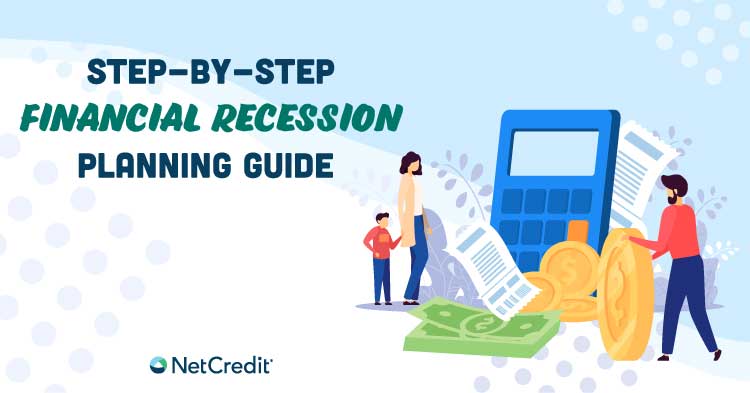Many of us have been there before — unplanned bills, emergency expenses or the loss of a job — it’s not always possible to make ends meet. However, avoiding a financial issue now can make matters worse down the line.
You might feel like you’re out of options if you’re short on money or can’t pay bills, but we’re here to help. Read on to learn what happens if you can’t repay a loan, and what you can do in order to manage and afford payments.
What Happens if I Don’t Pay My Loan?
When you take out a personal loan or use a credit card, you agree to repay the borrowed amount, plus any applicable fees or interest for the account. Late or missing loan payments can lead to additional fees and penalties, in addition to a higher interest rate. Typically, late payments are 30 to 60 days past a bill’s due date, but lenders will vary. Delinquent accounts may be sent to a collection agency, though it depends on the specific creditor and/or situation.
Beyond the extra money and fees, late or delinquent loan payments can take a serious toll on your credit health, as these negative marks are recorded on your credit history.
Why Should I Care About My Credit Score?
Credit scores measure a person’s creditworthiness, or their recorded borrowing history. Good credit can help save money on interest and fees, while poor credit can make it harder to secure affordable financing later down the line. Although it’s a financial measurement, credit scores can affect our lives in other ways, like when we apply for a job or lease an apartment.
What Are My Options if I Can’t Pay My Loan?
Option 1: Contact Your Creditor
Although you may want to steer clear of any creditors, it’s a good idea to be proactive and honest about payment issues as they arise. Many companies offer some type of payment deferment and/or financial relief programs designed to help people in need manage bills and protect their credit. You can find the customer service line on your most recent billing statement, or search for the information online. Keep in mind that you’ll still need to comply with any new payment agreement in order to keep your account (and credit score) in good standing.
Option 2: Prioritize Expenses
Temporarily prioritizing the essential expenses is another option to help manage loan payments and get your finances back on track. Typically, “needs” include costs that are required to live and work — think food, housing, utilities and transportation. Pay for the essentials, and as much as you can towards the loan and other bills. Avoid spending money on non-essential purchases if you’re behind on any financial responsibilities. Remember that you may incur fees, interest or other charges for late, partial or missed payments, so aim to pay all bills on time and in full.
Option 3: Lower Monthly Spending
You may have room to lower spending in other areas if you can’t afford to pay your loan. Review all categories and look for ways to cut expenses, particularly on non-essential “wants”, or create a budget if you don’t already have one. These tips can help stretch your money further:
- Delay discretionary purchases: Avoid any nonessential expenses if you’re behind on any bills.
- Notify friends and family: Include loved ones in your reduced spending plan to help share costs or get together for less.
- Leverage today’s personal finance tools: Use the latest software and smart phone apps to manage all your accounts from one convenient place.
- Explore alternative transportation: While it might seem like driving a car or hailing a taxi are necessary to get to work, walking or biking can help save money.
Option 4: Apply for Public Resources
Depending on your situation, you may qualify for financial assistance or public programs to help cover the essentials. While the options will largely depend on your area, income and other factors, you can find out what’s available with this convenient SpringFour resource tool.
Option 5: Consider Debt Consolidation
Debt consolidation is the process of merging existing debt into a single loan, typically in order to pay off other bills, save money on interest and/or lower monthly payments. Consolidating debt may also help you manage finances since you’d have one loan payment, rather than multiple bills and due dates to remember each month.
Option 6: Increase Your Income
Although the economy may be in poor shape, there are many growing industries to pursue in a recession. Temporary, seasonal, part-time and remote positions are also available to help you earn more money and manage expenses. You can also pursue professional training and/or career-related education to increase earning potential or transition to a new industry.
The information in this article is provided for educational and informational purposes only, without any express or implied warranty of any kind, including warranties of accuracy, completeness or fitness for any particular purpose. The information in this article is not intended to be and does not constitute financial, legal or any other advice. The information in this article is general in nature and is not specific to you the user or anyone else.






